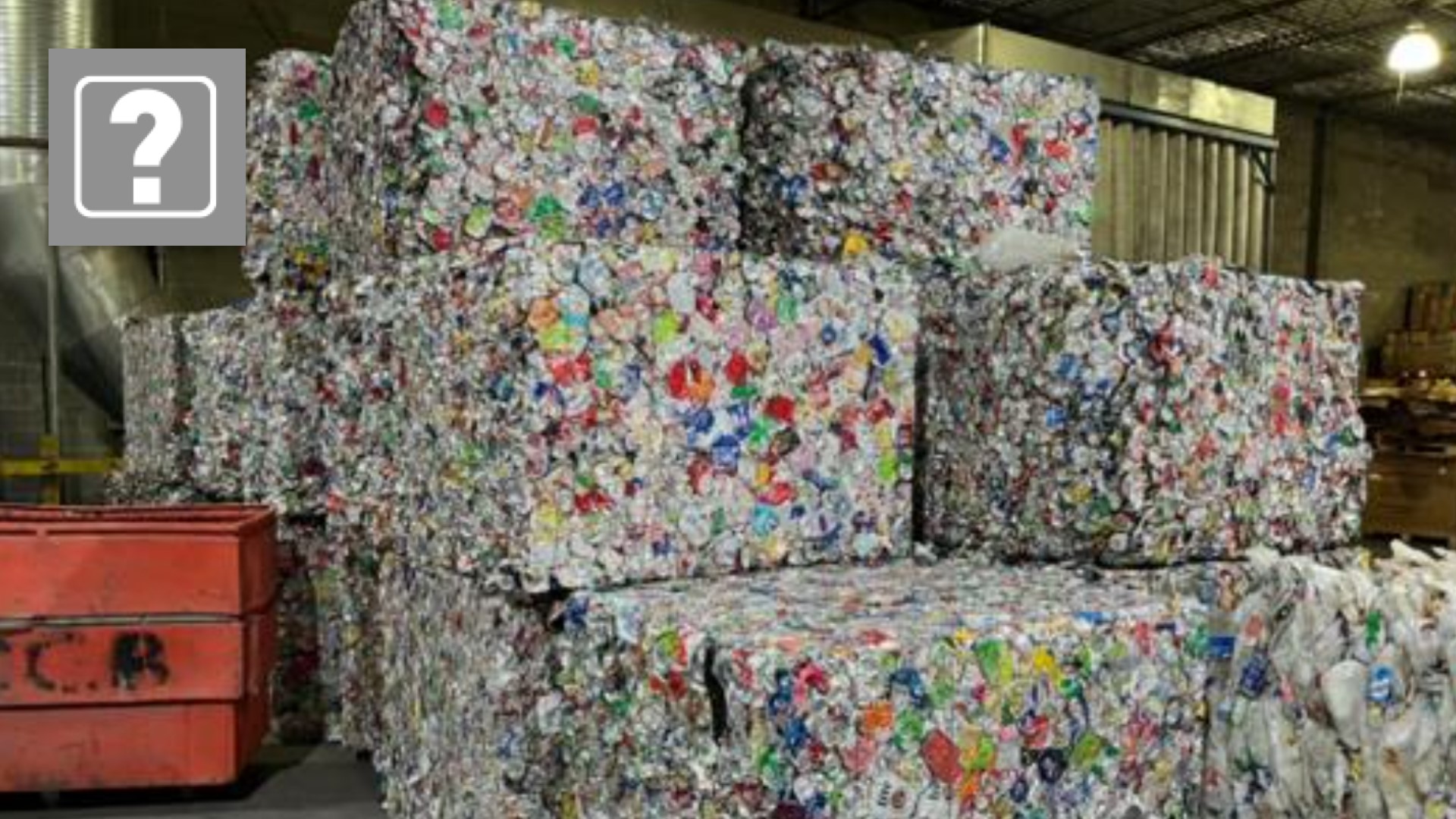ST. LOUIS — Recycling hasn't had the best track record in the St. Louis area recently.
In late 2021, St. Louis City officials told 5 On Your Side that they were no longer picking up trash and recycling separately due to staffing shortages. This resulted in residents' recycling ending up in the city's landfills.
The city has since stopped taking recycling to landfills and restarted transporting recyclables to recycling centers as of May 2022. But, the short stint has created a lasting poor perception of recycling in the St. Louis area.
Galen Benson from St. Charles is one of the many viewers who asked the VERIFY team to find out whether St. Louis-area residents were wasting their time separating trash from recycling. We looked into the recycling process at a regional scale to find out.
The question
Are most of the St. Louis area's recyclables being recycled?
Our sources
- Republic Services
- WM
- Waste Connections/Quincy Recycling
- Jean Ponzi, Green Resources Manager at the EarthWays Center of Missouri Botanical Garden
- Jean Corbett, Sustainability Education and Outreach Coordinator at Brightside St. Louis
The answer
Yes, the vast majority of what goes into the area's Material Recovery Facilities ends up going through the entire recycling process.
What we found
The counties around St. Louis primarily rely on three companies for their recycling needs: Republic Services, WM and Waste Connections.
Around 80% of households in the St. Louis metro area are serviced by the Republic Services Material Recovery Facility (MRF) in Hazelwood, according to city and state agencies. WM also drops off their picked-up recycling at the facility.
The facility recovers 79% of that material on average, while 21% is contaminated plastic film, yard waste, clothing and trash.
Waste Connections doesn't own its own recycling center, but it partners with and uses the Quincy Recycling MRF in Bridgeton for its recyclable processing needs.
Quincy Recycling told 5 On Your Side that 84% of recyclables that arrive at the facility are processed, while the other 16% are contaminated materials.
To VERIFY these numbers, we spoke to recycling experts in the area. They said that both Republic Services and Quincy Recycling's numbers were in line with national recycling trends.
When recyclables are picked up from a residence or a business, they are transported to an MRF, like Republic Service's and Quincy Recycling's MRFs. There, the recyclables are sorted and contaminated materials are discarded.
"It's a type of firewall," said Ponzi, an environmental educator in St. Louis for more than thirty years. "All of that comingled, single stream, mishmash is all sorted back out into its constituent streams, and those sorted materials are bailed and brokered to someone who wants to use them to make new products."
Sanitation workers are not indiscriminately throwing recyclables into the trash. However, some of what ends up in recycling bins is either too contaminated to process or wasn't recyclable in the first place, and therefore is sent to the landfill.
"This is not something the refuse department can do much about. The way items go into alley [recycling] dumpsters, sometimes, they're just too contaminated," Corbett said. "If we can get the word out to everyone on how to recycle properly and how to recycle responsibly, then we know that this will get better."
Republic Services' "contamination" threshold can be met in numerous ways, according to Jeremy Walters, the company's sustainability ambassador.
"Once paper and cardboard are soiled with food or liquid they must be thrown away," Walters said. "If loads of recyclables come to the recycling center with heavy amounts of contamination, we do our best to segregate this material so that it does not further contaminate good recyclables."
White advised residents looking to make sure the most materials are recycled as possible should remember three things:
- Only recycle what is listed as accepted
- Always gently rinse food and beverage containers, tap them dry and replace the lids before recycling
- Never bag recyclables, always place them loose inside your recycling bin
We can VERIFY: The vast majority of what is placed into St Louis area recycling bins go through the entire recycling process.
VERIFY
Have a question you want us to VERIFY? Email hbassler@ksdk.com or verify@ksdk.com with your claim.
Craving more VERIFY? See every St. Louis-area claim we've looked into here.

